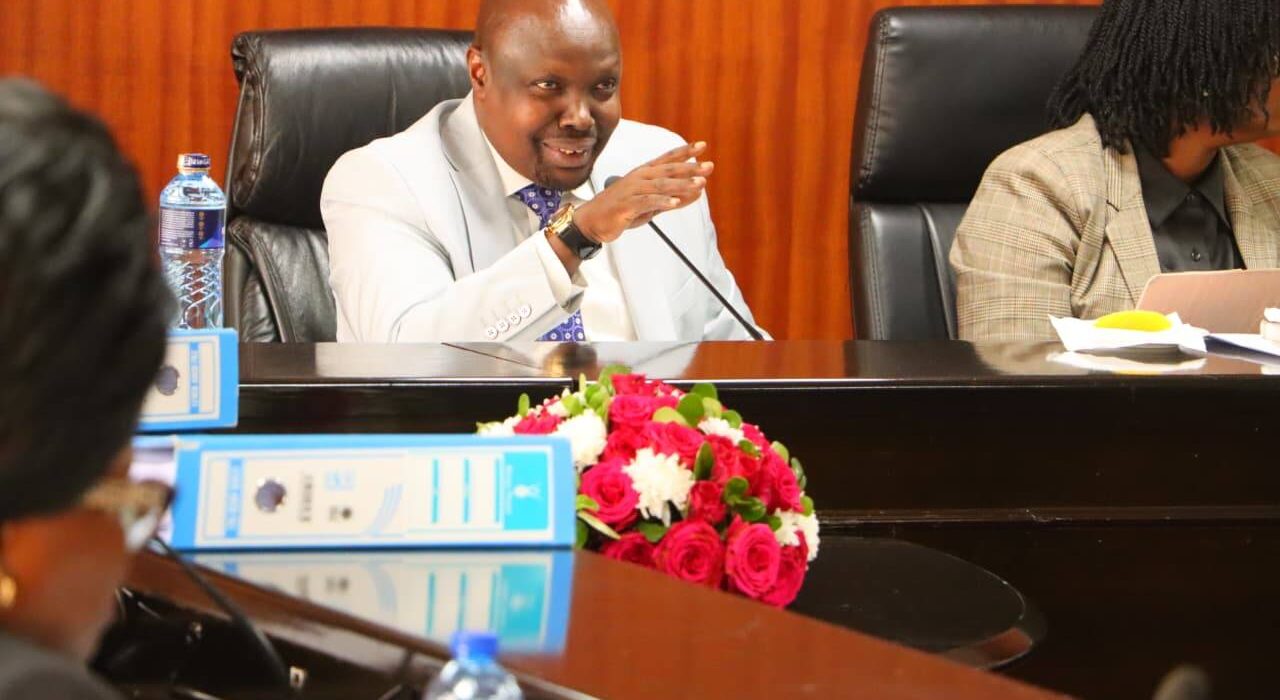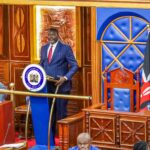Kenya Power and Lighting Company (KPLC) has once again found itself on the parliamentary hot seat, as lawmakers demanded answers over the state-owned utility’s worsening finances, governance failures, and operational inefficiencies.
The company’s senior management, led by Managing Director Dr. Joseph Siror, appeared before the Public Investments Committee on Commercial Affairs and Energy (PICCAE) on Wednesday, November 12, to respond to audit queries spanning three financial years from 2020/21 to 2022/23.
The session, chaired by Pokot South MP David Pkosing, laid bare the financial strain at the electricity distributor, which has posted seven consecutive years of losses. The Auditor-General’s report shows Kenya Power recorded a net loss of KSh 4.4 billion in the last financial year, weighed down by a negative working capital of KSh 51 billion, ballooning debts, and forex exposure.
“There exists a material uncertainty on the company’s ability to meet its obligations as they fall due,”
— Auditor-General’s Report
These findings prompted MPs to question whether the utility could continue operating sustainably without urgent government intervention and structural reforms.
Dr. Siror: Company slowly stabilizing
In his defense, Dr. Siror painted a cautiously optimistic outlook, telling MPs that the company had begun showing signs of recovery through tariff adjustments, internal cost-cutting, and operational restructuring.
“Our working capital deficit has reduced from KSh 75 billion in 2020 to KSh 51 billion in 2023,”
he said.
“With ongoing reforms and revenue growth, we expect to turn a corner soon.”
However, committee members expressed skepticism, pointing to unresolved debts owed to Kenya Power by public institutions — totaling over KSh 26 billion. The biggest defaulters include the Rural Electrification Scheme and various county governments, which have failed to pay for street lighting and other electricity services.
Despite a 2019 Cabinet directive instructing the Treasury to refund KSh 19.4 billion owed to Kenya Power, the committee heard that no funds have been remitted to date.
“How can the government expect efficiency from Kenya Power when it’s one of the biggest defaulters?”
posed Hon. Pkosing.
“We must walk the talk when it comes to paying our debts.”
Forex losses and procurement scandals
Adding to the company’s woes are foreign exchange losses of KSh 23 billion, a result of dollar-denominated loans and power purchase agreements. Dr. Siror revealed that the company has petitioned the Energy and Petroleum Regulatory Authority (EPRA) to revise the forex adjustment mechanism by 2026 to cushion consumers and the utility from volatile exchange rates.
The Auditor-General’s report also flagged irregular procurement practices, including the controversial purchase of a 10-acre plot in Machakos for KSh 75 million — nearly double its valuation. Other issues include direct procurement of spare parts without competitive bidding and the payment of KSh 488 million in long-pending supplier invoices dating back nearly a decade.
Another major red flag involved an unauthorized exit package of KSh 26.8 million paid to a former managing director without approval from the State Corporations Advisory Committee.
System losses, stalled projects, and inefficiencies
Kenya Power continues to lose 23% of the electricity it distributes, well above the EPRA-approved limit of 19.5%. These losses — estimated to cost the firm billions annually — stem from technical faults, illegal connections, and inadequate monitoring infrastructure.
Meanwhile, the Committee revealed that over 21,000 customer connection projects worth KSh 12 billion remain incomplete — some for as long as 11 years — despite customers having paid in full. MPs questioned how such inefficiencies could persist amid the company’s financial distress.
“The people of Kenya cannot continue paying for inefficiencies, corruption, and poor management,”
said Hon. Pkosing.
“If Kenya Power is to survive, accountability must be non-negotiable.”
Parliament pushes for reforms
The Committee pledged to issue firm recommendations aimed at tightening oversight, enforcing financial discipline, and ensuring that public utilities deliver value for money. Lawmakers also hinted at pushing for a comprehensive review of Kenya Power’s management structure, procurement controls, and oversight frameworks.
Dr. Siror maintained that the company was implementing reforms to improve transparency and performance.
“We have made progress in reducing technical losses, improving billing accuracy, and engaging the government on debt settlements,” he said. “The goal is to make Kenya Power self-sustaining once again.”
A national concern
Kenya Power’s financial troubles have far-reaching implications for millions of households and businesses that rely on reliable, affordable electricity. Rising system losses, mounting debts, and governance lapses continue to undermine investor confidence and jeopardize the government’s energy-access targets.
As Parliament intensifies scrutiny, the country will be watching whether Kenya Power can finally stabilize its operations or remain entangled in a cycle of losses, debt, and inefficiency.





